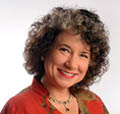"What's your goal in life?" I asked a cheerful young man at an alumni event. "I want to retire by 35" was his snappy answer.
He smiled, cocked his head as if auditioning to play George Clooney's kid brother and waited for what he clearly expected to be my delight. The line was rehearsed and he was close to 25; obviously it had played well before other audiences.
I wasn't impressed.
"Let me put it another way," I said. "From what kind of work would you like to retire?"
"Something creative. Something where my passions and my talents are showcased. I don't want some soulless, mind-numbing office job."
"Ever had an office job? Is that how you know they're all soulless?"
"I don't need to do a 9-5 to know it. Do you need to work in factory or dig ditches to know those are jobs you wouldn't want?"
He wasn't necessarily a fool, this young man, but he was either ignorant or innocent — or both. And I thought about how his family, his college and his culture had all failed him.
By encouraging him to believe in his own exceptionalism, the adults who brought him up did him a disservice: By permitting him to believe, as the old expression put it, that the world owed him a living, they might have made it much more difficult for him to earn one.
That's why, instead of searching for his vocation, he was standing on the world's platform waiting for the Fame Train to arrive. He thought all he had to do was hail it by waving his arm.
This was not the scion of an aristocratic household, either, brought up by nannies and fawned over by tutors; this was a child of the suburbs, not of the landed gentry.
Yet he made it obvious that he was meant for greater things than everyday work. He made it clear he thought of tedious work as something done by others: by the ungifted, the ordinary and the common.
His mistake about work is what's common.
My father worked in a small family factory with his brothers, brothers-in-law and a sister. When the place couldn't compete with larger companies, they went out of business and, at 60, my father started working retail.
When he very ill at the end of his life, I asked my father if he had any unfulfilled wishes, things he secretly would've liked to have done.
"I wish I could've been a mechanic," he shrugged. "I would've liked to work with cars."
His last dreams weren't about voyages or extravagances. They were about what other kinds of hard work he would've done and how he might have liked it a little more. He would have preferred working on automobile engines to working on sewing machines.
People once talked about the dignity of labor. Now the word "labor" is usually associated with birth and "dignity" is usually associated with aging and death.
Birth and death are serious occasions, true, but work is also a big deal, or it should be. You spend more time at work than you do birthing and dying if you're only a little bit lucky.
How can you tell that being able to get a job and going to work is important? For much of history, women and those marginalized by the culture were prohibited from doing it.
Women, people of color, the very poor or those seen as being of the "wrong" religion were barred from being able to walk through the gates and apply for work.
These jobs remained not as much out of reach as they were out of bounds. Laws had to be passed so that hard-working people would be permitted the privilege of being able to get them.
There were a lot of things I wanted to say to the graduate (including, of course, "One word: plastics") but all I said was that getting a job he didn't like would still be better than hanging around hoping to be discovered. Work is an essential part of life's conversation. If you sit at the grown-ups' table, it should be an experience you are able to discuss first hand.
It's OK if those hands are a little rough.
Gina Barreca
The Hartford Courant
(TNS)
Comment by clicking here.
Gina Barreca is a columnist for The Hartford Courant.



 Contact The Editor
Contact The Editor
 Articles By This Author
Articles By This Author